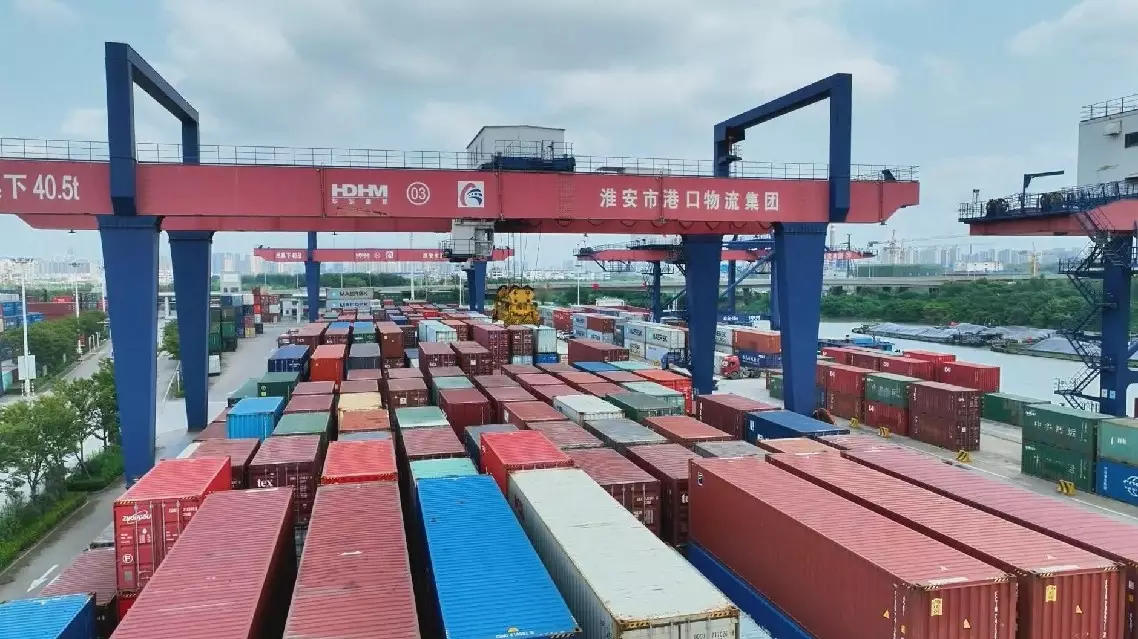After new technology put him out of work, a customer service professional in south China's Guangdong Province has benefited from a supportive local environment as he strived to redefine his place in society.
For 17 years, Tan Jiazhi worked in a company in Guangzhou central business district (CBD), one of three national-level CBDs along with Beijing CBD and Shanghai CBD. The company he worked for is known in China as a national leader in elevator advertising services.
During his time at the company, he managed to work his way up to become the director of customer service, with a monthly income of 20,000 yuan (around 2760.79 U.S. dollars), significantly higher than the average monthly income in Guangzhou of around 12,700 yuan.
In December 2021, however, the rise of artificial intelligence rendered his job obsolete, and Tan was laid off at the age of 39.
"It's not because you lack competency, nor is it due to low efficiency at the company. It's just that the company has developed a system to replace manual operations. At that time, I thought that maintaining the department's relatively stable operation demonstrated the value of my efforts, but it was not the case when I went out to look for a new job. I don't have any sales skills or any client resources," said Tan.
Making matters worse, Tan's wife, originally a partner in a real estate company with a monthly income of about 30,000 yuan (around 4,100 U.S. dollars), was diagnosed with breast cancer around this time. The disease had spread to her lymph nodes, and she had to resign and undergo surgery and chemotherapy.
Amid the hardships, Tan was forced to find whatever employment was available to support both his parents and parents-in-law and his two children in primary school.
"I was planning to do takeout or online ride-hailing services. I even aspired to work as a sanitation worker. One day, I happened to see someone selling fish skin and thought that could be something. So, I started coming to the vegetable market and setting up a stall to sell fish skin," he said.
As he sought to set up shop, neighboring businesses in the market were quick to welcome Tan and offer their support.
"Everybody here is willing to offer help. If you want to make a living, you have to work hard and endure hardships, especially in the market. He works very hard," said Chen Chuxiong, a shoe store owner who rented a small place in front of his store to Tan.
In only a month after opening, Tan expanded his business from a booth into a full-fledged shop. He opened a branch store in another location with a larger flow of visitors nine months later.
Tan also received support from a business partner, 56-year-old Du Shaoyan, who has worked in the catering industry for 30 years.
"My husband suffered a stroke in 2018. We have to pay for many things. I feel that people at the age of 50 are still young, so we still need to work hard. In fact, people in Guangzhou have been taught since they were young that they can work in any position, even though it was at the lowest level," said Du.
In addition to support from community members, Tan said that support from the government, tailored specifically for people in his shoes, was crucial in shaping his success story.
"We also applied for the start-up subsidy. If unemployed people start a business, the one-time subsidy is 10,000 yuan (around 1,380 U.S. dollars)," said Tan, referring to a one-time subsidy set up by Guangdong Province in 2022.
"One nice thing is that I would be seen as an old man if I worked at a company, but I am a young man in the vegetable market. Some experienced bosses were also laid off in the past while restarting business here. I can learn more from them and gain experience with fewer detours," he said.
After becoming unemployed, Tan had to overcome self-doubt as he struggled to start over, but his firm commitment to providing for his family led him on a path to becoming a successful small business owner.
For his wife, Nie Wenxi, his efforts to provide for them have been more than sufficient.
"I think you are focusing too much on your business. Let's just scrimp enough and make money at a certain degree. Then let's call it a day and make a plan like climbing a mountain every week. You can spend time with me and our kids, and also keep fit. Moreover, it costs nothing, right? Of course, I am quite satisfied now. So don't be too anxious. You must not be too anxious," she said to her husband.
"I have a limited time left. I am 42 years old this year. I guess I will still be in good shape until I am 50, and that means I have a few years left now. As I have to repay my parents for my upbringing and raise my children, I have to fight hard in these ten years. I worked 17 years with great ease, but I feel that this is the real start of my life," said Tan.

Community support in Guangzhou helps laid-off worker start small business









